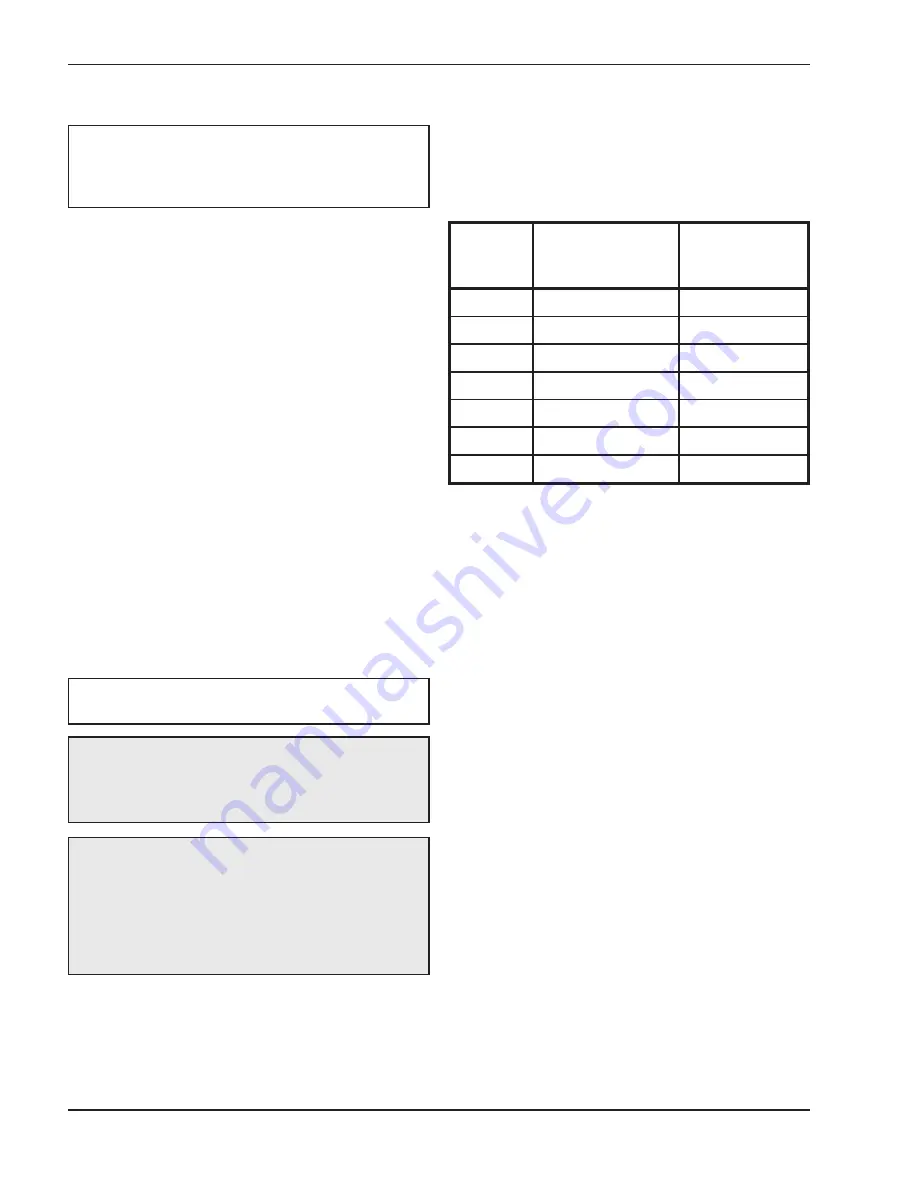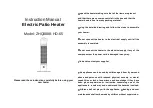
If the heater needs to be secured to the ground, use
the holes in the anchoring legs on the heater.
Clearances
Indoor Installations
When installed according to the listed minimum clear-
ances from combustible construction, these heaters
can be serviced without removing permanent structur-
al construction around the heater. However, for ease
of servicing, we recommend a clearance of at least 24
in. in front, at least 24 in. on the rear and 24 in. above
the top of the heater. This will allow the heater to be
serviced in its installed location without movement or
removal of the heater.
Service clearances less than the minimum may
require removal of the heater to service either the heat
exchanger or the burner components. In either case,
the heater must be installed in a manner that will
enable the heater to be serviced without removing any
structure around the heater.
Outdoor Installations
These heaters are design-certified for outdoor installa-
tion. Heaters must not be installed under an overhang
unless clearances are in accordance with local instal-
lation codes and the requirements of the gas supplier.
Three sides must be open in the area under the over-
hang. Roof water drainage must be diverted away
from heaters installed under overhangs.
Equipment Base
The heater must be mounted on a level, structural-
ly sound surface.
The heater is approved for
installation on a combustible surface but must NEVER
be installed on carpeting. Gas-fueled equipment
installed in enclosed parking garages must be located
at least 18 in. above the floor.
In addition, the heater shall be installed such that the
gas ignition system components are protected from
water (dripping, spraying, rain, etc.) during appliance
operation or service (circulator replacement, control
replacement, etc.).
8
Table D: Clearances — Indoor Installations
INSTALLATION
Installation Codes
Installations must follow these codes:
•
Local, state, provincial, and national codes, laws,
regulations and ordinances
• National Fuel Gas Code, ANSI Z223.1/NFPA 54 –
latest edition (NFGC)
•
National Electrical Code, ANSI/NFPA 70 - latest
edition (NEC)
•
Standard for Controls and Safety Devices for
Automatically Fired Boilers, ANSI/ASME CSD-1,
(CSD-1) when required
•
For Canada only: CAN/CSA B149 Natural Gas
and Propane Installation Code and CSA C22.1
C.E.C. Part 1 (C22.1)
*DO NOT install on carpeting.
CAUTION:
This boiler should be located in an area
where water leakage will not result in damage to the
area adjacent to the appliances or to the structure.
When such locations cannot be avoided, it is
recommended that a suitable catch pan, adequately
drained, be installed under the appliance. The pan
must not restrict air flow.
Heater
Side
Min. Clearances
from Combustible
Surfaces
Minimum
Service
Clearances
Floor*
0”
0”
Rear
24”
24”
Right Side
0”
0”
Left Side
0”
0”
Top
12”
24”
Front
Open
24”
Vent
1”
1”
CAUTION:
The boiler must be mounted on a level
base to allow condensate to drain properly from the
heat exchanger.
The condensate is acidic and
highly corrosive.
NOTE:
The following instructions are intended for
simple applications. For more detailed
configurations and set-up, consult the VERSA IC
Control I&O Manual (Catalog #5000.72).
NOTE:
The top jacket of the boiler is sloped from
front to rear.
Summary of Contents for 300A
Page 44: ...WIRING DIAGRAM 44...









































